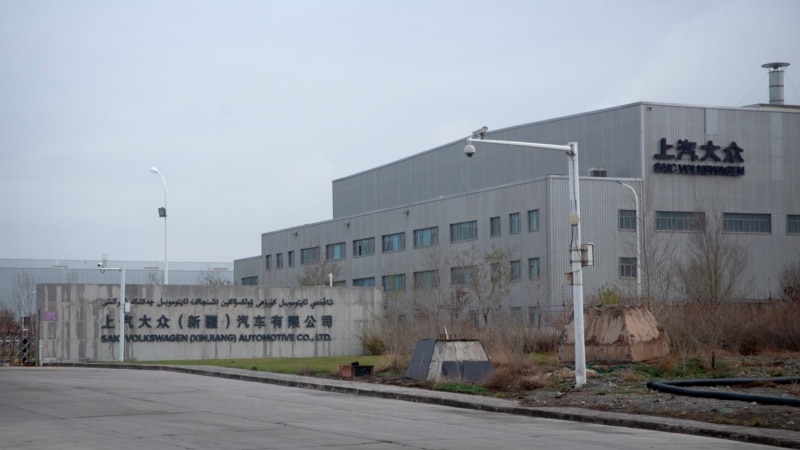The European Union took another step toward banning forced labor products on Tuesday after negotiators agreed on a law that supporters hope will help block Chinese imports involving the Uyghur Muslim minority.
The EU’s draft text does not specifically mention China, but focuses on all products made with forced labor, including those made within the EU.
Rights groups say at least one million people, mostly from Muslim minorities, are imprisoned in China’s northwestern Xinjiang region and face widespread abuses, including forced sterilization of women and forced labor.
According to the International Labor Organization, nearly 28 million people, including 3.3 million children, are in forced labor worldwide.
Under the new law, the European Commission must investigate when a company suspects forced labor in a supply chain outside the EU.
Meanwhile, the 27-member EU is expected to launch investigations when forced labor is suspected within the EU.
If the use of forced labor is proven, the goods in question can be confiscated at the border and withdrawn from European markets and online markets.
The company may be fined for any violations. Although the law does not set a minimum or maximum limit, officials said the size of the fine should act as a deterrent.
If a company removes forced labor from its supply chain, banned products can be returned to the European market.
“The prevalence of forced labor products on our markets is becoming increasingly clear, especially those made with Uyghur forced labor. This is unacceptable,” EU MP Maria Manuel Leto Marquez ( Maria Manuel Leitao Marques, who spearheaded the text in parliament.
“We can no longer turn a blind eye to what is happening in our supply chains,” she said.
The U.S. Congress banned all imports from Xinjiang in 2021 unless companies in the region can prove that their production does not include forced labor.
The EU law was first proposed in 2022 and will officially come into effect after it is officially adopted by the 27 EU member states and parliament.
“We now urge member states to respect the agreement… and finalize the new law as soon as possible,” said Raphael Glucksmann, a socialist EU lawmaker.
“The EU is on track to ban products made with forced labor from entering our markets,” Valdis Dombrovskis, the EU’s top trade official, said on social media.
“This now requires careful and effective implementation,” he said.
Follow us on Google news ,Twitter , and Join Whatsapp Group of thelocalreport.in
